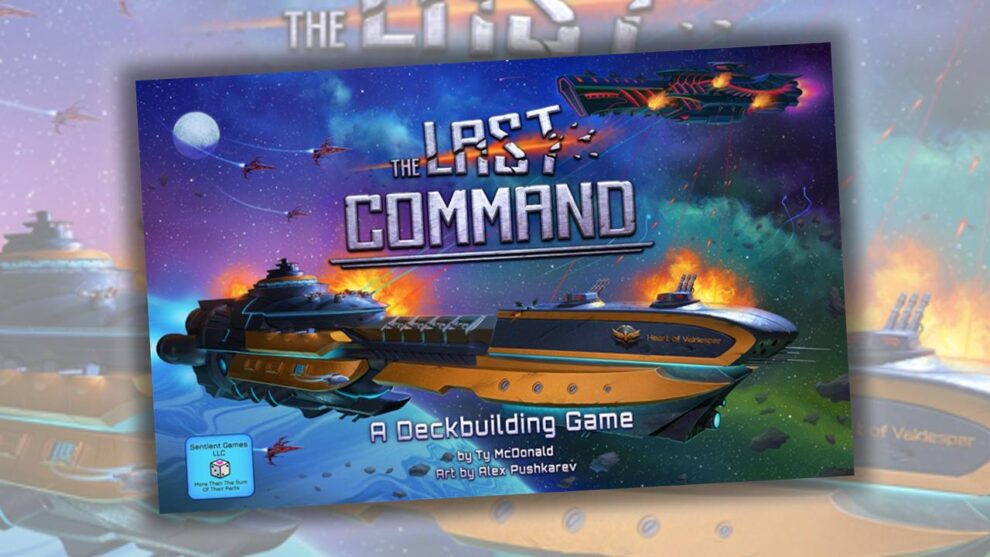Disclosure: Meeple Mountain received a free copy of this product in exchange for an honest, unbiased review. This review is not intended to be an endorsement.
Issue Your Final Order
Strolling through the halls of Origins Game Fair this year, I had a chance to check out indie games from smaller publishers. It’s tough to break into the market when you’re up against behemoths, but I was drawn to Sentient Games’ booth, with epic space battle banners adorning the floor.
I was instantly reminded of the large-scale space clashes from Battlestar Galactica and Star Trek. Much like those shows, these battles aren’t won through superior hardware but through the crew’s skill and coordination under pressure. Even in history, two dreadnoughts at sea firing broadside required the synchronized effort of countless deckhands.
The Last Command is a two-player duel — an ode to those cinematic naval and sci-fi battles. Designer Ty McDonald recreates those tense skirmishes through deckbuilding and strategic hand management.
Remember, a good captain always goes down with their ship.
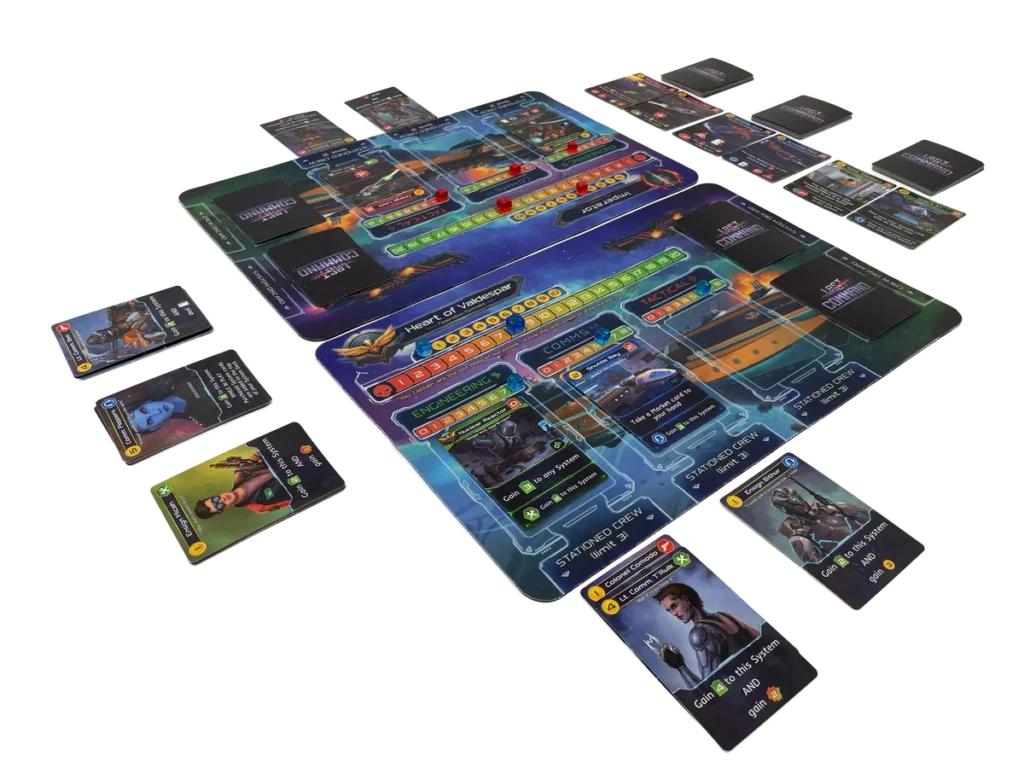
System Configuration
The Last Command plays in alternating turns until one player’s ship reaches zero health. Each ship comprises three separate systems — tactical, comms, and engineering — each with its own power (resource) pool.
Players start their turns by playing all cards in hand. Cards come in two types: system or crew. System cards cost power from their respective pools and are often one-time or ongoing effects. They also feature a system bonus that triggers if a matching crew type is present in that system at the end of the turn.
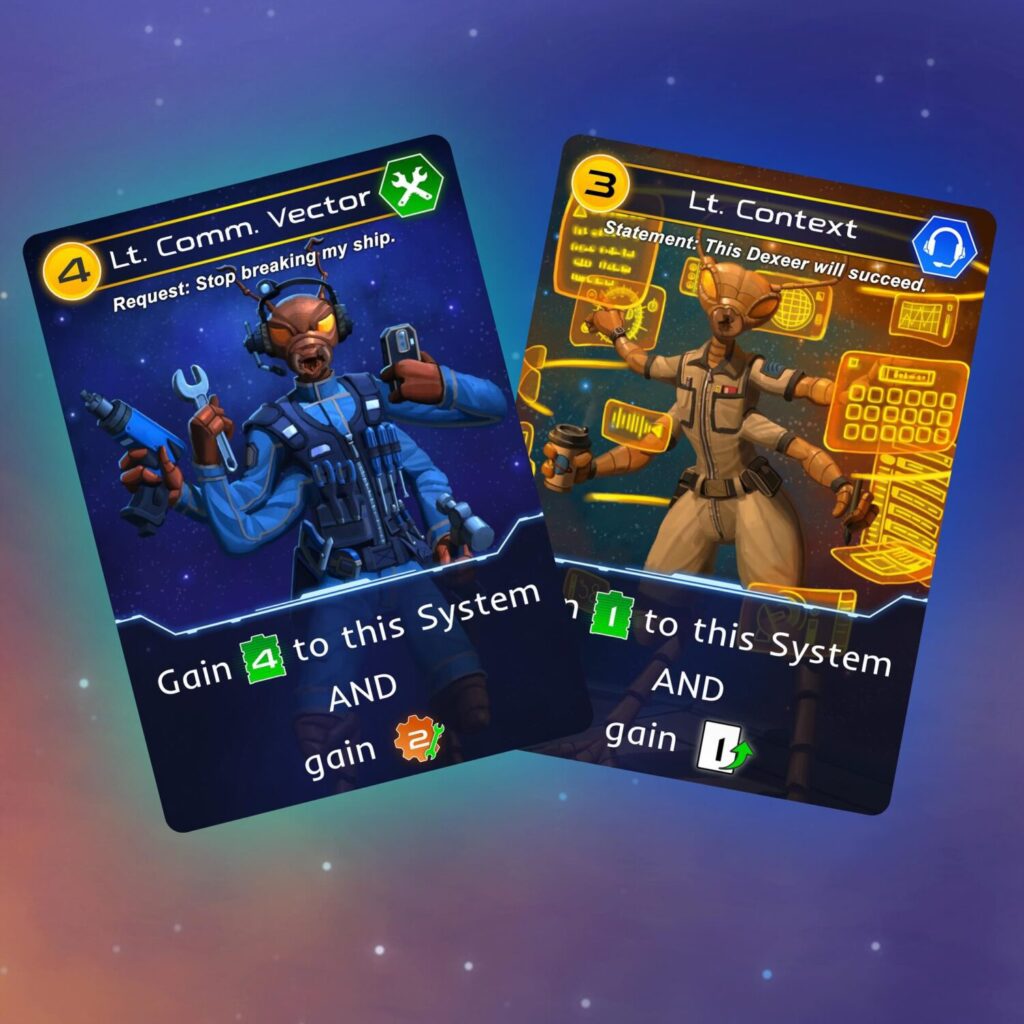
Crew cards, on the other hand, are played at no cost and usually generate resources or trigger bonuses for system cards.
Afterwards comes the market phase, where credits are spent to buy new crew or system cards. System bonuses trigger, new cards are drawn into hand, where players choose whether to draw from their system deck, crew deck, or a mix of both.
Malfunctions are cards that clog an opponent’s deck; when drawn, they cause damage or other detrimental effects before cycling back to the general supply.
Once a system or crew deck is empty, all cards from that section are wiped, clearing ongoing effects but allowing those cards to be reshuffled and reused.
Steady As She Goes
This delightful battle is as much strategic as it is tactical. On the surface, it looks similar to Star Realms. And while Star Realms is great, The Last Command goes much deeper in its decision space.
Even the market, where cards are grouped by system and crew types instead of being a random assortment, offers more agency to fine-tune your ship’s build. It’s less about market RNG and more about deliberate strategy.
The balancing act runs deeper than just money and health. Managing the individual system power supplies becomes a fun puzzle. There were plenty of times when I had the perfect hand but not enough power to play my cards. It all circles back to buying smart. Since power carries over, it can be worth taking a “bum” turn to set up for something juicier next time. (Unplayed cards even generate money if you can’t afford to play them.)
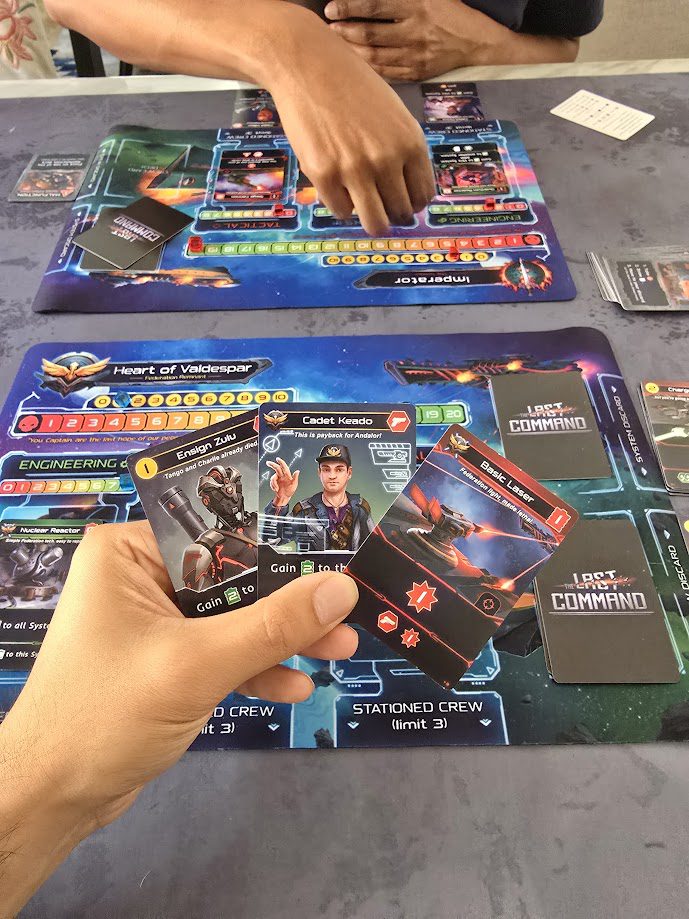
Then there’s the added challenge of aligning crew types with systems to trigger those satisfying bonuses.
The open deck-drawing system adds even more flexibility. Choosing whether to draw from the system or crew deck (or both) lets you time your setup just right. When either deck runs out, your tableau resets, which may sting at first but gives you another chance to integrate newly purchased cards.
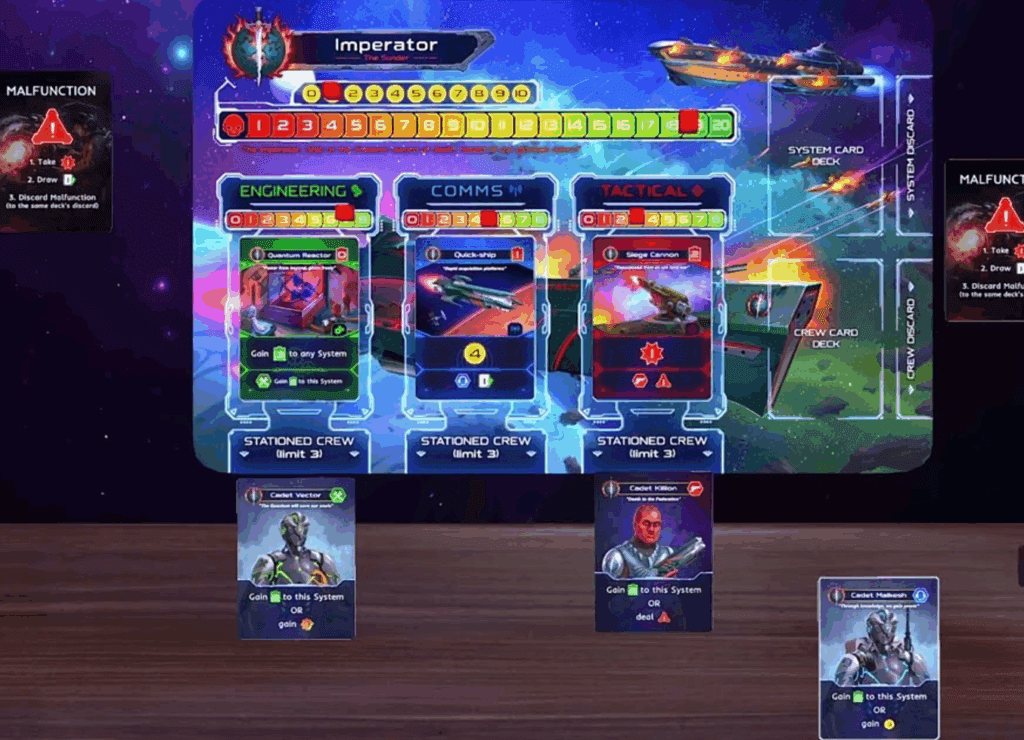
Malfunctions are a mechanic you’ll hate to draw yourself, but love to see your opponent pull. This one gets a chef’s kiss. Most damage isn’t directly caused by system cards but is self-inflicted through drawing malfunctions. Filling your opponent’s deck with these ticking time bombs and watching them draw a full hand of chaos is pure joy.
Thematically, it nails the vibe. Systems fail, alarms blare, chaos erupts. You can practically hear the shouts: “Captain! Took a direct hit—cannons down in section four!”
But you’re a cool-headed captain. You stay the course.
One More Command
The Last Command surprised me in all the best ways. It takes the familiar ideas of deckbuilding and adds intricate mechanics that layer in strategic depth. As much as I love the genre, it’s easy to get frustrated when you’re stuck with a bad market or poor synergy. Here, you have more control, as any good ship captain should.
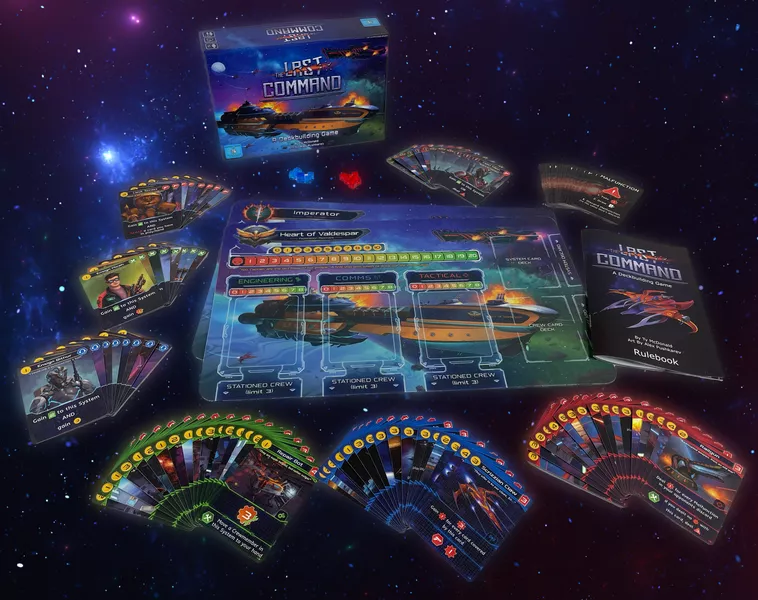
Since it’s a race to deplete your opponent’s health, there’s no time to build the “perfect engine.” Sometimes you’ll need to abandon efficiency and go full battle stations as your hull starts to crack. It’s fast-paced, lasting about 30–60 minutes, and even when a turn feels uneventful, the tempo never drags; the action quickly swings back your way.
The choices are plentiful, meaningful, and make this feel like Star Realms 2.0. Don’t let the name fool you; you’ll be eager to restart and issue new commands right away.
If you’re into deckbuilders or dueling card games, I highly recommend checking this one out. There’s no sweeter feeling than gazing across the void, watching your opponent give a final salute as their ship explodes into oblivion.


